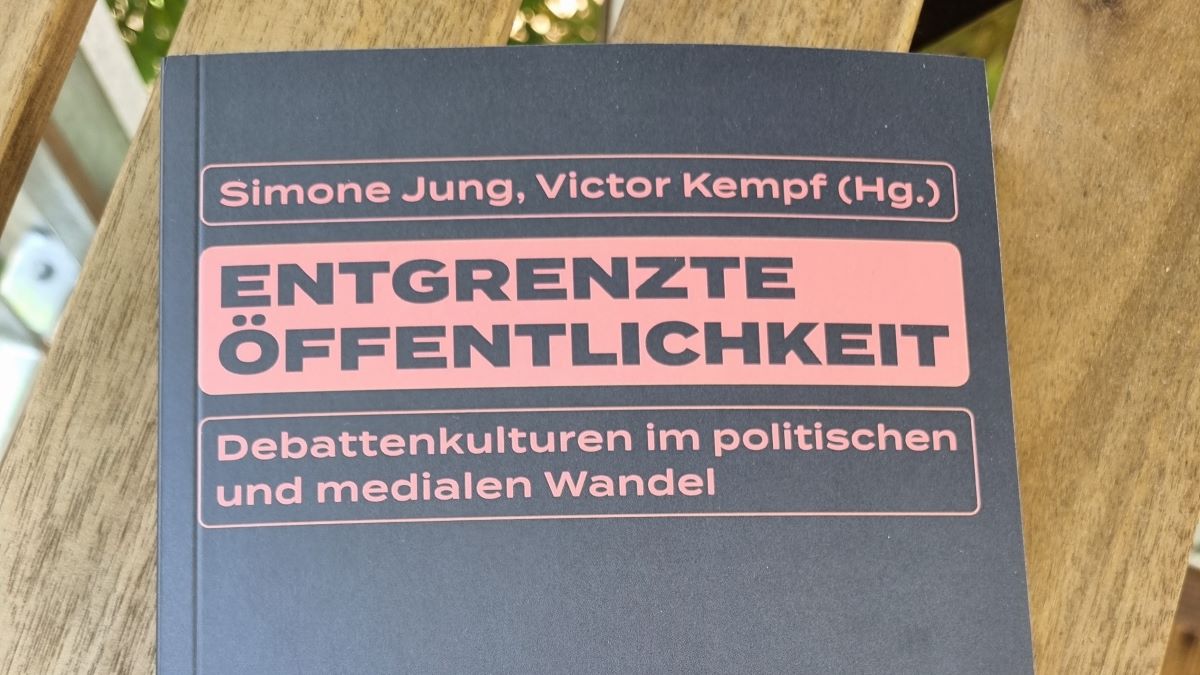New article: Democratization Through Filter Bubbles. Affordances of Closures and Openings (in German)

What role does the Internet play in identity politics? Theories of identity politics in the feminist and democratic theory tradition are remarkably ignorant of the media of identity political communication, which have changed completely in recent years - from scene zines to platforms and messengers.
In the new article, I analyze how the Internet and digital communication can open up new possibilities for identity politics and thus strengthen democracy.
Abstract
Algorithms and filter bubbles are often criticized for leading to epistemic closures, which in turn reinforce identity-political divisions and thus endanger democracy. This article argues for the opposite thesis: epistemic closures through digital communication are conducive to the construction of identity-political counterpublics from which hegemonic discourses can be criticized in order to democratize democracy. Digital communication is conducive to identity-political democratization because it enables counterpublics both epistemic closure and discursive openness, through which an identity-political standpoint can be formed and effectively introduced into the hegemonic public sphere.
The Volume: Public Sphere Unbounded
The article is another building block in the radical democratic theory of identity politics that I am currently developing. I am delighted that it appears in the volume “Public Sphere Unbounded. Debate Cultures in Political and Media Change.” Edited by Victor Kempf and Simone Jung, the book brings together the most innovative voices analyzing the digital structural transformation of the public sphere. Contributers include among others Carolin Wiedemann, Floris Biskamp, Jan-Philipp Kruse and Paula Villa Braslavsky.
Abstract of the Volume
Digitization is accompanied by a dissolution of the boundaries of the public sphere. Media technologies not only provide spaces of possibility in which conflicts are negotiated. They are also transforming political discourse. Social media in particular is often seen as a threat to a culture of constructive debate. The contributors take a step back and ask from social, cultural, and philosophical perspectives how public spheres are produced and transformed. They discuss theoretical as well as empirical perspectives and analyze normative issues that are gaining importance in the face of global dynamics and new forms of cultural conflict.
Cite and Download (open access)
Schubert, Karsten (2023): Demokratisierung durch Filter Bubbles. Affordanzen der Schließung und Öffnung. In: Jung, Simone; Kempf, Victor (Hg.): Entgrenzte Öffentlichkeit. Debattenkulturen im politischen und medialen Wandel. Bielefeld: transcript, 123–139.
https://doi.org/10.14361/9783839463352-007
PDF
Related Posts
- New Open-Access Anthology: Transformations of the Political. Radical Democratic Theories for the 2020s, 4. December 2023
- Identity politics and the democratization of democracy. Oscillations between power and reason in radical democratic and standpoint theory - New Article in Constellations, 4. October 2023
- New Article: A matter of elites? Identity politics between democratic representation and elite capture - APuZ Schriftenreihe, 14. February 2023
- The tension between universalism/particularism and reason/power in democracy. New English and German short texts, 22. November 2022
- Conference: Transformations of the Political. Radical Democratic Theory for the 2020s, 19. October 2022
Radical DemocracyDigital CommunicationIdentity PoliticsWeizenbaum Institut
375 Words
2023-06-26 18:36 +0200